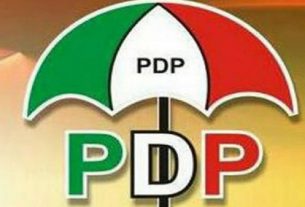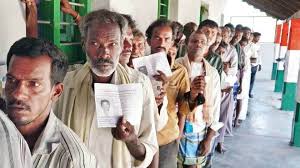Presidential candidate of the Labour Party and ex-Anambra State Governor, Mr Peter Obi, has said that the alleged fiscal recklessness and inability to tackle insecurity and corruption have been primarily responsible for Nigeria’s failing economy.
Declaring the so called subsidy on petroleum products as organised crime, he said Nigeria needs an aggressive production of local refining.
Pointedly, he accused government of being behind the worrisome oil theft in the country.
According to him, domestic problems, caused by leadership failure, have damaged the unity and cohesiveness of the country.
Obi, as guest speaker at a Private Sector Economic Forum organised by the Lagos Chamber of Commerce and Industry in Lagos on Monday, said the government that would succeed the President Muhammadu Buhari administration in 2023 would be confronted by an array of daunting challenges, both domestic and external.
He said Nigeria is not bereft of transformative ideas from brilliant minds, noting that institutional weakness and lack of political will had led to poor outcomes that had affected the people. He regretted that Nigeria now has frightening levels of poverty, unemployment rate and out-of-school children.
According to him, given the nation’s history, politics and governance challenges, moving Nigeria forward would require concerted efforts and a shift from coercive to consensus approach.
He regretted that the domestic challenges that have accumulated over the years, and because of leadership failure, have not been dealt with, have impacted heavily on the nation’s unity, social cohesion as well as the economic outcome. It has affected us negatively.
His words: “Our country today is bad news. We now have the concentration of the highest number of people living in poverty, the highest number of out of school children, and the highest rate of unemployment.”
He said that leapfrogging Nigeria from oil dependence to industrial revolution, improving human capital development, and formulating good foreign policy must be brought to the front burner in order to revive the nation’s ailing economy.
“Make resources available to ensure a private-sector led oil refining,” he advised the Federal Government.
Answering questions from panelists at the event, Obi also reacted to a question on the issue of cost of governance.
“I have allergies to waste,” declared Obi who obviously took a swipe at the government again.
He lamented that home issues, brought on by management failure, have broken the unity and cohesiveness of the nation.
Noting that Nigeria is not bereft of transformative concepts from sensible minds, he saidd that institutional weak points and lack of political will had led to poor outcomes that had affected the folks.
He regretted that Nigeria now has horrifying ranges of poverty, unemployment price and out-of-school children.
According to him, given Nigeria’s historical past, politics and governance challenges, transferring Nigeria ahead would require concerted efforts and a shift from coercive to consensus strategy.
He said: “The government that will come in 2023 will be confronted by an array of daunting challenges, both domestic and external.”
According to him, the homes amassed through the years, and due to management failure, haven’t been handled, and these have impacted closely on the nation’s unity, social cohesion in addition to the financial final result; and these have “affected us negatively.”
He regretted: “Our country today is bad news. We now have the concentration of the highest number of people living in poverty, the highest number of out of school children, and the highest rate of unemployment.”
The Labour Party presidential candidate promised also to deal with insecurity aggressively since the situation was impacting on all other economic issues.
According to him, if the security situation can be handled, farmers will be back to the farms, which will quickly reduce the food inflation.
His words: “We have an expansive land in the north. I say often that the greatest physical asset we have today is the vast uncultivated land in the north, which needs to be cultivated, and invested in. A state like Niger state has no reason talking about statutory allocation with its high expanse of land. They have enough to feed Nigeria and export.
“When you handle insecurity, you can put people back to farms and invest on the productive assets of our country.
When you talk about assets. It’s not only NNPC and Ajaokuta, land is the major asset that has to be invested in . We will not allow our land to lie waste, we will invest on it and it will be productive.”
On how to tackle insecurity, Obi said he will overhaul the entire Secury architecture, ensure that it will put in place a multi level policing in federal and state levels, provide modern gadgets and vehicles..
On power, he said the government has privatised distribution and generation, leaving the critical link between this two, which is transmission.
His words: “For me the first thing I will so is to liberalise transmission. It’s critical. We can support the existing companies involved in power to ensure dedicated gas supply, gas to power, ensure that generation, distribution and transmission are properly aligned ,have clear certainty of policy and regulatory environment for them to operate.
“We will support access to funding ,deal with the tax incentives, deal with issue of embedded power and renewable energy.
“The issue of power will be an emergency to deal with by all means possible to ensure we have power.”
On how to access resources to deal with the issues on ground, Obi said his government will involve the private sector, noting that “Government does not need to be entirely involved.”
He said next in his order of priority in his first 100 days in office will be to deal with the issues of human capital, by tackling education.
“Our human capital is low, the more you invest in education, the better our economy. We will invest in education, health and start pulling people out of poverty. These are orders of priority of what we will do.”
On debt, he said that “There is nothing wrong with borrowing. Every country of the world borrows money, especially the countries we use as an examples. Some of them owe more than 80 percent of their GDP like America and China is owing 60 percent of their GDP.
“Japan is owing 200 percent of their GDP and others.
“The difference is that if you borrow for consumption you are in trouble, if you borrow for investment your economy will grow. The reason why things are not working here is that we borrow for consumption.
“We throw away the money. So debt is a component of development, but it must be used efficiently and effectively for a purpose that brings value.
“You borrow money and then throw it away, that is why we have problem servicing our debt in the first place.
“If it was invested, it would have been used to service the debt.
“Under my watch, we will borrow for investment, we will not borrow for consumption.”
He said his government will cut the cost of governance, remove physical recklessly and “we will not borrow the much we have borrowed today.”
On the ports, he said “I’m a trader, I know what to do with that. The president knows.
“I assure you that dealing with trade – importation and export will be seamless.
“Remember I’m trying to drive export, that is what we are doing.
“I’ve made comparisons with Nigeria and over 30 countries and I’ve come to conclusion that Nigeria’s problem though daunting and difficult is solvable.
“All we need to have is leadership that is committed.
“My appeal is that 2023 election will not be based on ethnicity. Nigerians are suffering in all parts of the country .
We want to move from government-led to private led.
“So don’t vote for Peter Obi because I’m an Igbo man or vote for me because it’s my turn. I am not contesting based on religion or ethnicity.”





